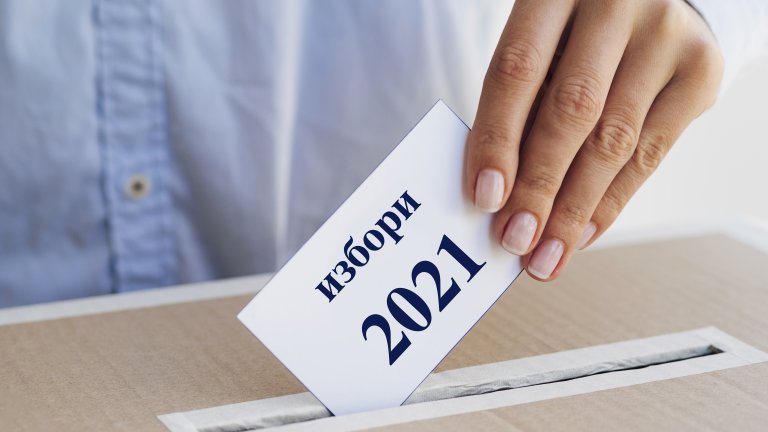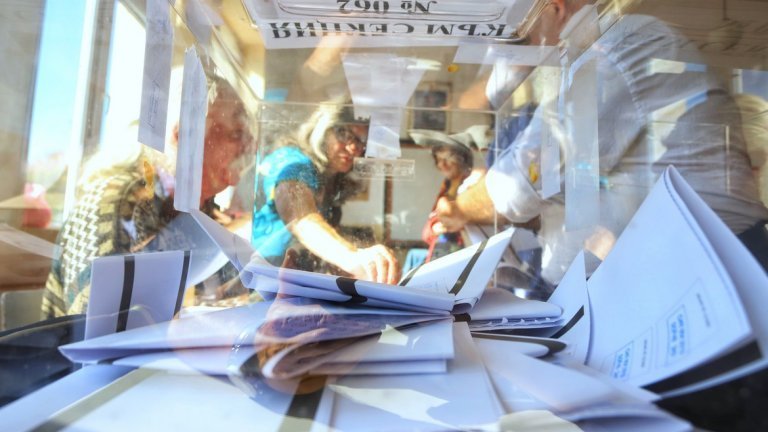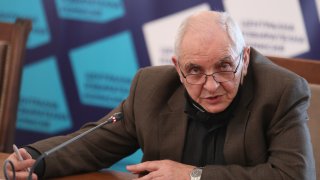
[ad_1]
This Sunday we elect the new 240 deputies, who in the next 4 years will represent us in the 45th National Assembly and will vote on the laws of the Republic of Bulgaria.
Election day in our country begins at 7:00 a.m. and ends at 8:00 p.m., and if there are multitudes of people willing to vote in separate sections, election day can be extended until 9:00 p.m., but no later.
This year, for the first time, we will have the opportunity to cast our vote, in addition to the paper and electronic vote. There are 9398 voting machines distributed in the country, with which you can cast your vote by card. The card will be provided by the voting station.
When the card is inserted into the machine, the full list of candidates for the next parliament will appear on the screen. You must click on your selection or select the “I don’t vote for anyone” check box. After making your choice and confirming it, the machine will print a sheet that you will have to fold in half and put in the ballot box, and the card will have to be returned to the section committee.
With the integrated ballot, the voter will be able to indicate their choice by marking the box in front of the candidate’s name with an X or V with a blue pen.
6,732,316 people included in the CEC’s preliminary lists have the right to vote. The vote will be available in 11,983 polling stations open in the country and abroad.
If you are not sure in which multi-member constituency (MIR) the section in which you have the right to vote is located, you can consult the website of the Central Election Commission.
Our country is divided into a total of 32 multi-member electoral districts. 31 of them distribute the mandates, and each of them has at least four terms in parliament, and at most – 16 mandates, granted by the 23rd MIR of the city of Sofia. The 32nd MIR is for votes from abroad. They vote only for parties, but not for specific candidates, and their total number is added to the country’s votes.
All Bulgarian citizens who have reached the age of 18, have not been placed under guardianship and have not served a prison sentence have the right to vote.
The names of the voters are distributed according to their permanent addresses on an identification card. The exceptions are people who have a temporary residence address and have applied to the CEC to change their polling place before March 20.
An exception is made for students who can vote in a location other than the one entered on their ID card, provided they present a student book with a certified semester and fill out a statement indicating that they will not vote elsewhere. Statements will be provided by the voting station.
409 mobile sections have been opened for people with disabilities, where they can vote for the next parliament. They can vote in a mobile ballot box, as long as they have submitted an application before March 20 and have implemented their decision by the TEMC.
465 polling stations have been opened in 69 state polling stations for Bulgarians abroad. To vote abroad, they had to submit an electronic application on the website of the Central Election Commission before March 9.
According to the CEC, the majority of applications were from Bulgarians in the UK (6,408), followed by Bulgarians in Germany (4,586) and in third place were Bulgarians in Turkey (3,974). The largest number of open sections is in Germany (69), followed by Spain. with 52 and in third place is the United States with 34 polling stations.
The complete list of all polling stations in Bulgaria and abroad is published on the CEC website.
Almost 70,000 people in our country are in quarantine due to COVID-19 on Election Day. They will be able to vote in 185 mobile sections if they have submitted an electronic application to the respective municipality before March 31. Those quarantined after March 31 will also be able to cast their votes if more than 10 people in their constituency have requested mobile voting, the CEC said.

Due to the COVID-19 pandemic, anti-epidemic measures were introduced during the elections. Among the rules, voters must wear protective masks that cover their nose and mouth.
The mask can be briefly removed when the voter is identified, after which it must be put back on so that it covers the nose and mouth well. At the time of voting, the voter must leave their identity card in front of the sectional electoral commission so that their data is visible without having to touch the document.
In polling stations, a social distance of 1.5 meters must be respected. It is recommended that people wear gloves and avoid touching surfaces, including the black curtain in the dark room.
Chemicals that voters sign after casting their votes shall be placed in such a way as to avoid direct contact between the voter and members of the sectional electoral commission. After using the pen, it will be disinfected.
Every half hour the premises of the polling stations will be disinfected and ventilated.
In the battle for the new parliament, 30 parties and coalitions have been registered.
All parties and coalitions have advocates who will monitor Election Day violations and report back to leaders. A total of 20,000 police officers will also monitor the order on Election Day. Citizens can send signals of violations to the Regional Directorate of the Ministry of the Interior and to the prosecutor on duty.
The voting results will be presented by 5 sociological agencies: “Alpha Research”, “Gallup International”, “Market Links”, “Trend” and “OWL 5”, and the final results will be announced after the final vote count. . . In each round hour, the exit polls will present the results of the level of participation
They will be able to announce the first results of the voting at 8:00 p.m. at the end of the electoral day.
This year, five international media will cover the Bulgarian vote: Agence France-Presse, Reuters, Associated Press, Al Jazeera Britain and Channel 5 from Macedonia.
Webcafe will cover the entire election day live, as well as the night with the publication of the results. Follow us for more information.
